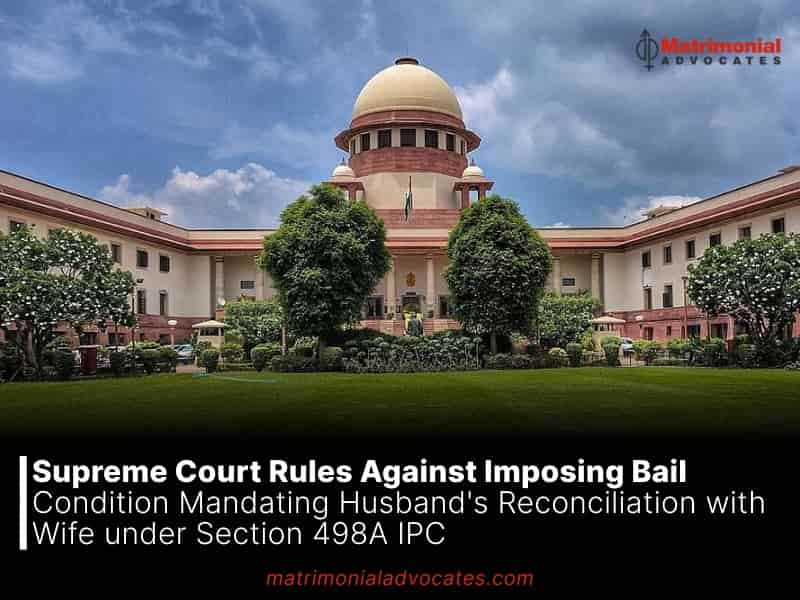
In a recent ruling, the Supreme Court declared that it is impermissible to impose a condition requiring an accused husband, seeking anticipatory bail under Section 498A of the IPC, to bring his wife to his residence and ensure her maintenance and dignity. The matter was adjudicated by a Division Bench consisting of Justices Bela M. Trivedi and Satish Chandra Sharma.
In the specific case, the appellant, who was the accused husband, had filed for anticipatory bail with the High Court of Jharkhand, Ranchi Bench. Although the High Court granted bail, it attached a unique condition. This condition compelled the husband to live with his wife at his residence, taking responsibility for her sustenance while preserving her dignity and honor. To provide clarity, the condition is articulated as follows:
“Accordingly, the petitioner is directed to surrender in the Court within six weeks from today and in the event of his arrest or surrendering, he will be enlarged on bail on satisfying the trial court that the petitioner has taken the opposite party no.2 to his house at Bandra locality of Ranchi and keeping and maintaining her with full dignity and honor as his lawful wife.”
Following this progression, the husband appealed to the High Court, seeking a reconsideration of the mentioned order. In the petition aimed at modifying the order, the husband contended that he had obtained a residence and was willing to fulfill his obligations towards his wife. In contrast, the wife expressed her willingness to reconcile and resume marital life, contingent on her husband joining her in their common residence. Despite these arguments, the High Court dismissed the husband’s request, emphasizing that the appellant remained resolute in his decision not to resume living with his wife at their shared residence.
“In view of the adamant attitude of the appellant in not resuming the conjugal life with the opposite party No.2 in the house of the appellant, where the opposite party No.2 was staying, his petition could not be considered.,” the High Court held.
In light of this context, the matter was escalated to the Supreme Court. The Court emphatically declared that imposing such a condition is not permissible when granting anticipatory bail. Moreover, this condition should not be used as justification for rejecting the appellant’s case.
“In our opinion, neither such condition should have been imposed by the High Court while granting an anticipatory bail, nor such could be a ground for rejection of the petition filed by the appellant.”
In view of this, while setting aside the impugned order, the Court granted bail to the accused.





